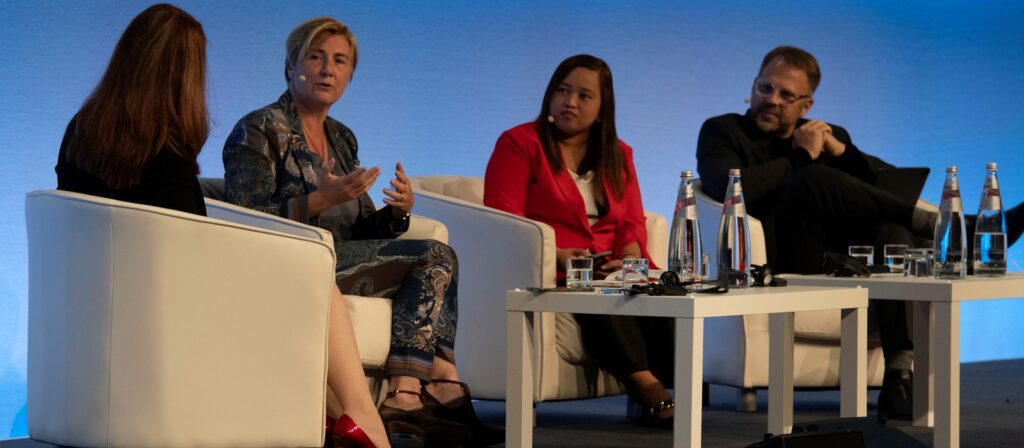The survey included the employer perspective from more than 1000 companies, including quite a large proportion of financial services and insurance companies. The majority of companies (83%) are in action phase regarding return to premises and long term planning. The expectation is that a change to a hybrid model is what the future will look like for most companies. Key challenges include retaining talent and providing flexibility for employees. Also, how to foster a culture of creativity and develop the next generation of talent in an increasingly diverse hybrid model. The survey revealed that insurers are slightly less positive about hybrid compared with other industries and a bit behind the curve in terms of embracing flexibility and the impact of providing flexibility on talent attraction and retention.
The survey also revealed that learning needs are changing, with the learning and development function one of the areas most affected by COVID-19 and return to premises. Most employers are considering at least one change in policy as part of their post-COVID-19 approach to learning and skill development.
Providing long term value is becoming more important, with 87% saying that they are likely to prioritize non-financial factors (such as value to society, employees and customers) when making decisions about their workplace post COVID-19. This could be an opportunity for mutual companies to differentiate themselves.
Employers are generally more positive than employees about change in culture during the pandemic. However, insurers are generally behind other industries in terms of investing in technology and appear to have lower trust, with 64% of insurers tracking employee whereabouts compared to 41% across all industries. The increased turnover of staff in the insurance industry could be partly as a result of insufficient flexibility being offered.
Employees are generally more positive about business travel than employers. This could partly be an outcome of more employers wanting to reduce carbon footprint. Also, it was reported that more people want to take advantage of being able work from other locations.
Companies are at different stages of planning for the “new normal” and those further along with the planning have reported better outcomes in terms of culture and productivity. Again, insurers are behind the curve compared to other industries with only 22% having communicated a detailed action plan to return to a “new normal” compared to 40% across all industries.
A majority of employers are planning a hybrid return to work model, with 57% following a hybrid plan compared to 35% wanting a full return to office and 7% planning to be fully remote. Insurance companies are following a similar philosophy to other industries. Many different approaches to hybrid are being taken, with the two main top-down approaches being rules-based and principles-based. For rules-based, employers are saying that at an organisation-wide level employees should come into the office for a set number of days, either prescribed or at the discretion of the teams. Companies adopting a principles-based approach believe that certain activities will be performed better face-to-face, e.g. performance reviews, onboarding, collaboration and brainstorming, often leaving it to managers and team leaders to decide how best to organise the week to get these done. Rules-based approaches are easier to implement but employees might not deem the hard and fast rules to be true flexibility, whereas principles-based approaches involve a lot more work in alignment and digging deep into the philosophy of how we work best.
Some companies are taking a more bottom-up approach, looking at things like different job roles, how much collaboration is needed, how much data they are working with, security risks, in order to take a bottom-up, fact-based view of people’s jobs before deciding what needs to be done in person or in the office and where there can be more flexibility on the things that could be done remotely.
There are many varied approaches to introducing a hybrid model. Some companies are reopening with leaders deciding who needs to be in the office, some have specified rules per function or per team and others are allowing individual employees to choose. There is no one model approach, with different organisations choosing what works best for them.
In terms of key challenges, insurers are particularly concerned about developing the next generation of talent and establishing fairness/ equity in new approaches to work compared with other industries.
This presentation was delivered during the monthly ICMIF Member-to-Member Discussions for HR Directors. Please contact Mike Ashurst, Vice-President of Reinsurance and Professional Development, to find out more about the HR discussions.





